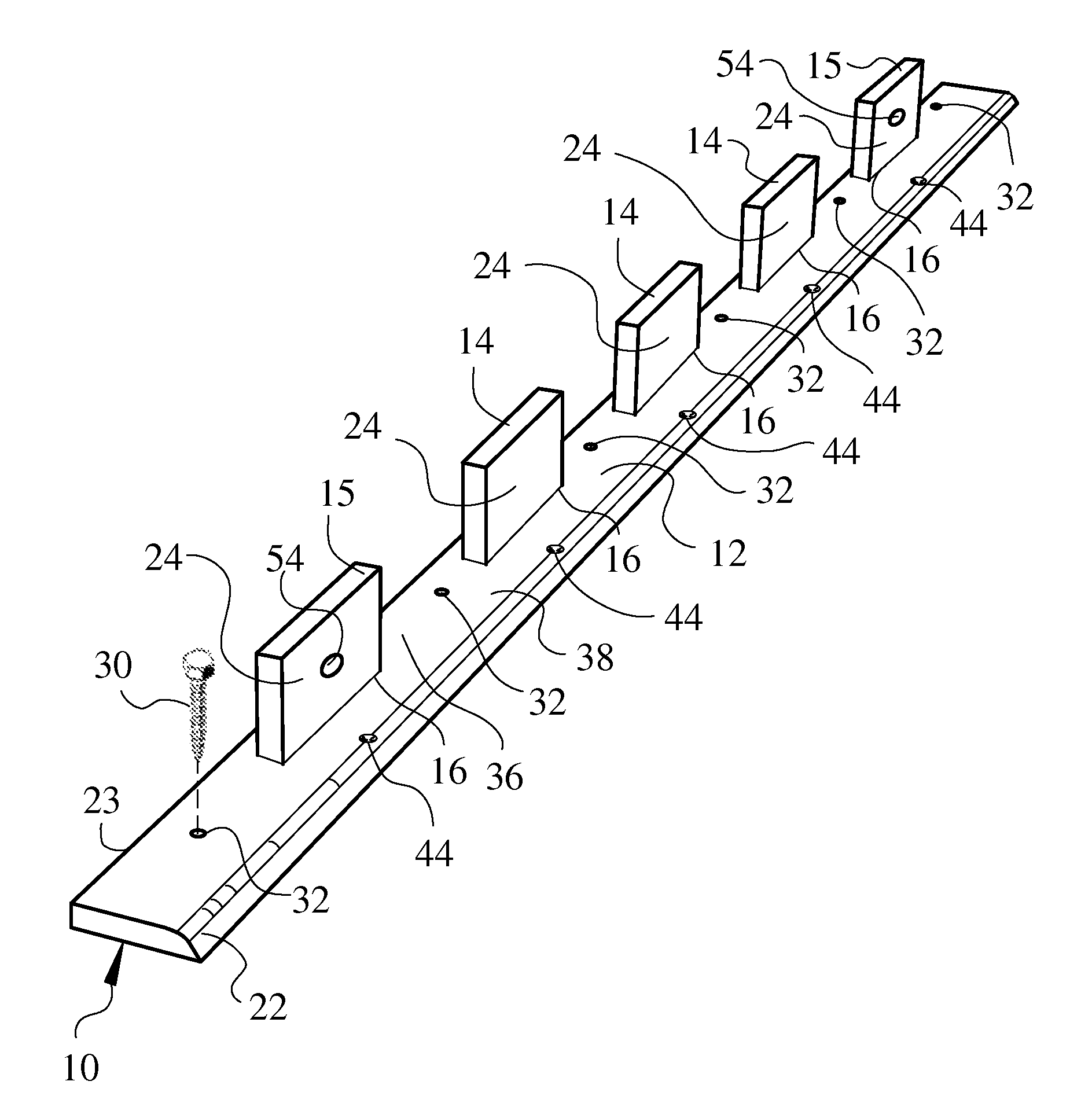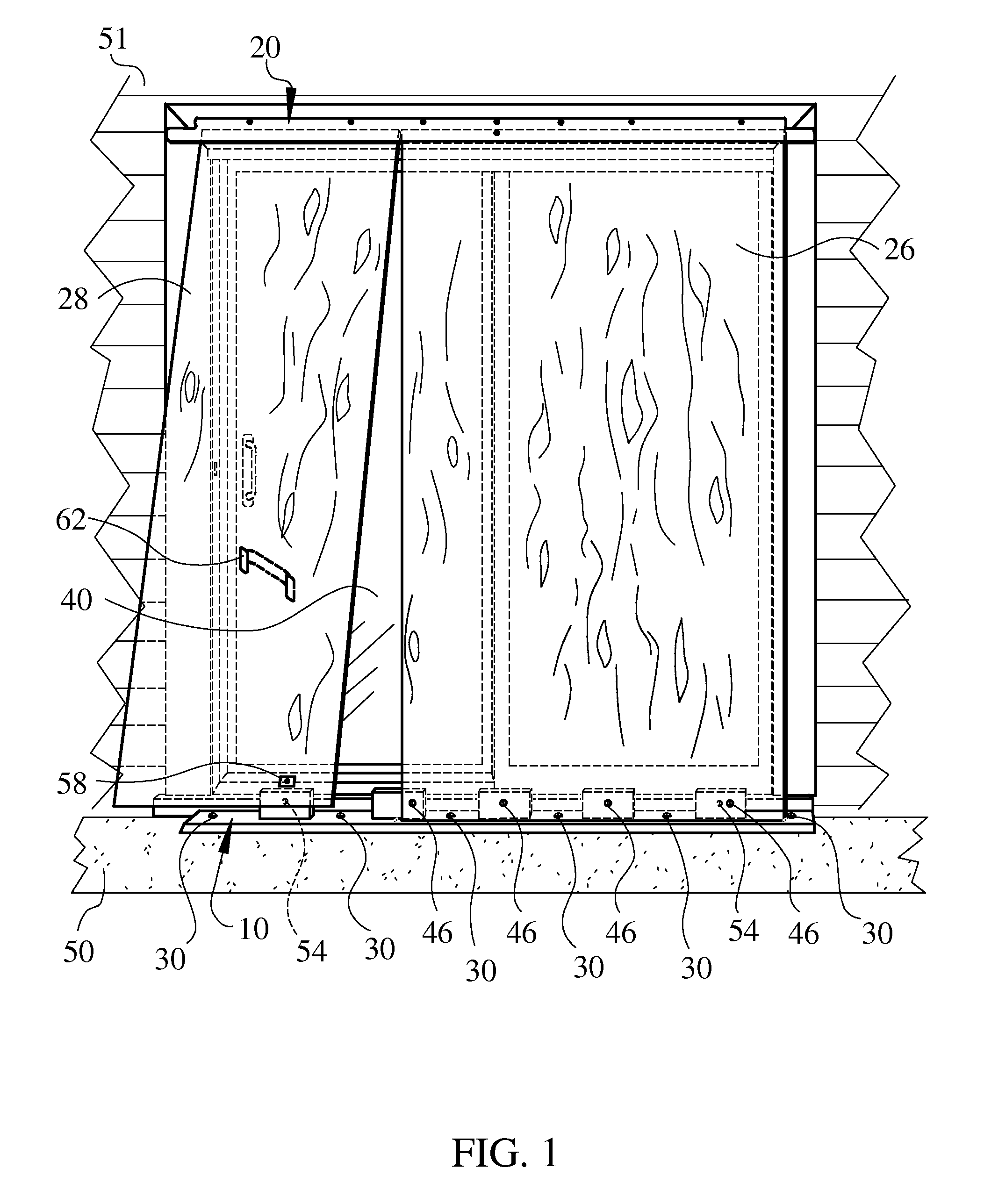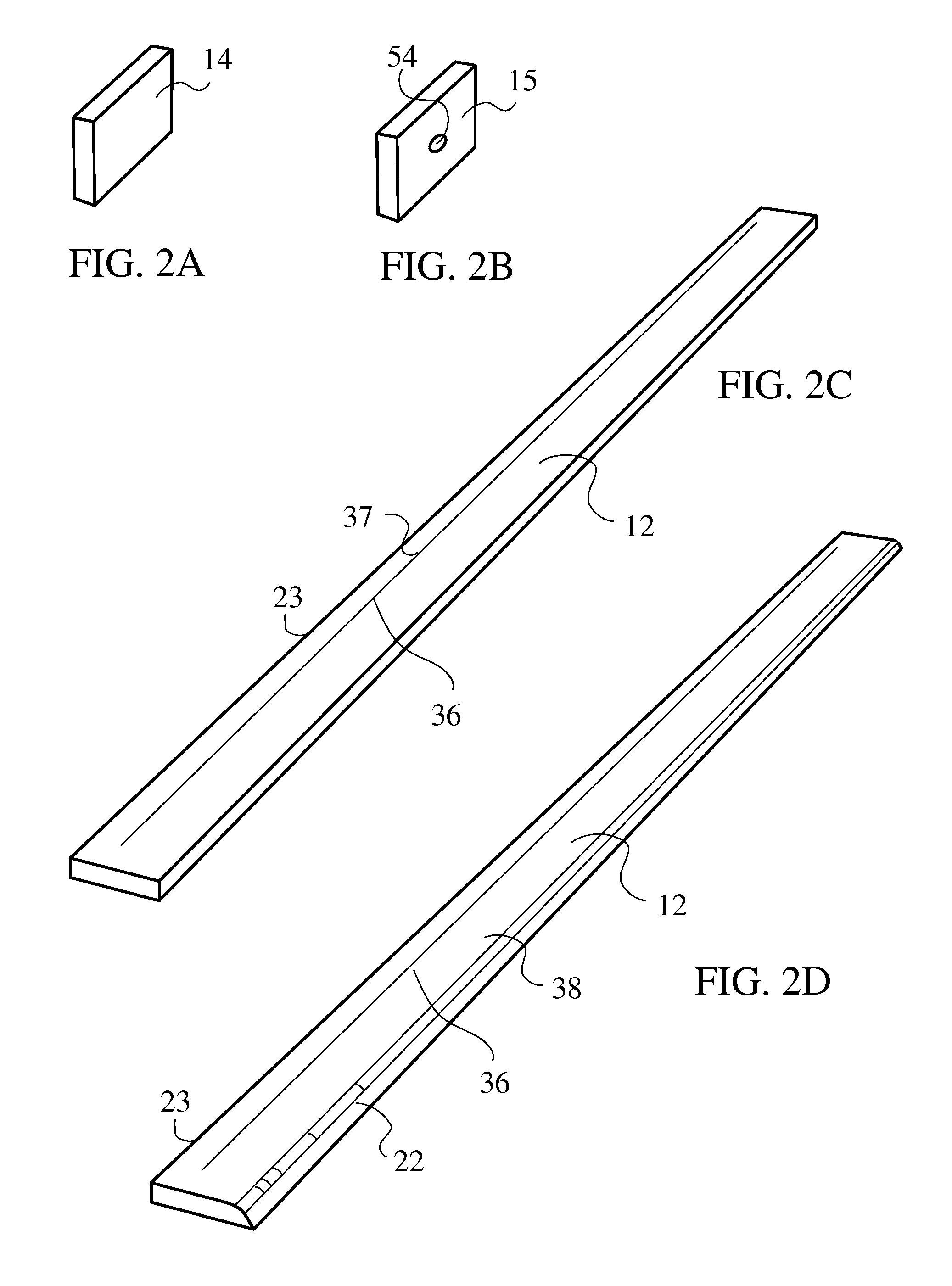Do-it-yourself glass door or window hurricane panel lower edge support and attachment system
a technology for hurricane panels and hurricane shutters, applied in hurricane shutters, door/window protective devices, hurricane shutters, etc., can solve the problems of removing the roof from the structure, causing widespread and ruinous, and reducing the cost of construction, so as to improve the affordability
- Summary
- Abstract
- Description
- Claims
- Application Information
AI Technical Summary
Benefits of technology
Problems solved by technology
Method used
Image
Examples
Embodiment Construction
[0112]Referring now to the drawings, one form of the do-it-yourself glass door or window hurricane panel lower edge support and attachment unit embodying the principles and concepts of the present invention will be described. One embodiment of the attachment unit is illustrated in FIG. 1, (frontal perspective view) and FIG. 2E (perspective view) of an installed system with one (1) stationary hurricane panel 26, one (1) inside access hurricane panel 28, and an upper panel track system 20. As can be seen by reference to the drawings, and in particular to FIG. 2E, the panel base plate unit 10 forms the basis of this embodiment. Referring to FIG. 2E, the material of choice for this embodiment is free-foam cellular PVC trim board. This material will be the material of choice for the base plate supporting element 12 (FIG. 2C), the standard attachment elements 14 (FIG. 2A) and the attachment elements with apertures 15 (FIG. 2B).
[0113]This free-foam cellular PVC trim material is selected fo...
PUM
 Login to View More
Login to View More Abstract
Description
Claims
Application Information
 Login to View More
Login to View More - R&D
- Intellectual Property
- Life Sciences
- Materials
- Tech Scout
- Unparalleled Data Quality
- Higher Quality Content
- 60% Fewer Hallucinations
Browse by: Latest US Patents, China's latest patents, Technical Efficacy Thesaurus, Application Domain, Technology Topic, Popular Technical Reports.
© 2025 PatSnap. All rights reserved.Legal|Privacy policy|Modern Slavery Act Transparency Statement|Sitemap|About US| Contact US: help@patsnap.com



